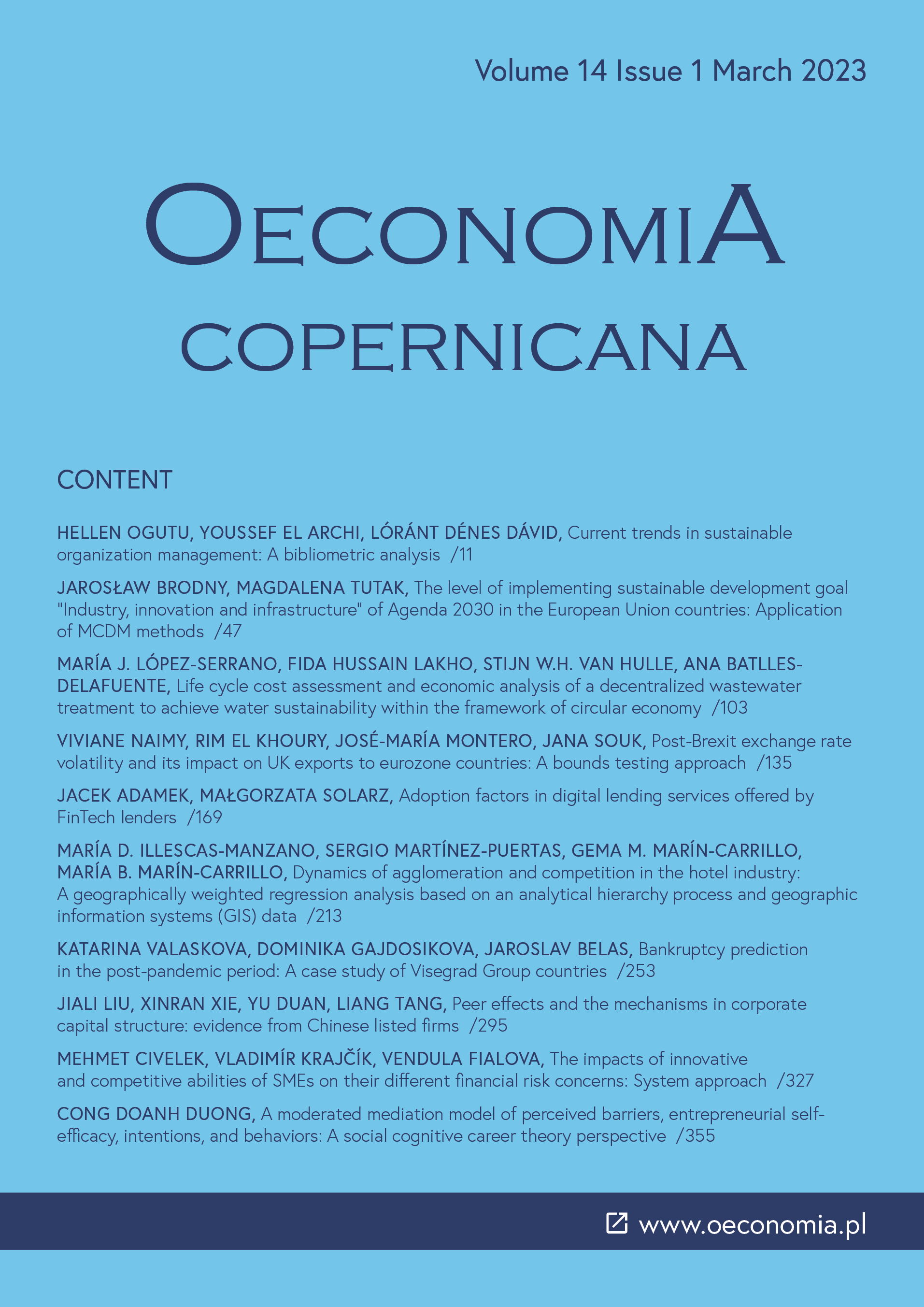Life cycle cost assessment and economic analysis of
a decentralized wastewater treatment to achieve
water sustainability within the framework of circular economy
Life cycle cost assessment and economic analysis of
a decentralized wastewater treatment to achieve
water sustainability within the framework of circular economy
Author(s): María J. López-Serrano, Fida Hussain Lakho, Stijn W. H. Van Hulle, Ana Batlles-delaFuenteSubject(s): Energy and Environmental Studies, Economic policy, Environmental and Energy policy
Published by: Instytut Badań Gospodarczych
Keywords: wastewater; economic analysis; LCCA; Sustainable Development Goals; monetary evaluation;
Summary/Abstract: Research background: The increasing water demand together with an unceasing production of wastewater worldwide has resulted in a situation where the scarcity and pollution of water resources are jeopardizing and depleting such a vital asset.Purpose of the article: In this context, Nature Based Solutions (NBS) such as Vertical Flow Constructed Wetlands (VFCWs) are key because of their capacity of channelling a waste into a resource. However, and notwithstanding their essential role, their financial benefits too often go unnoticed because of missing research that study them from an economic perspective and this article has covered this existing gap. The objective of this research is to analyse the economic consequences of using VFCW against its traditional alternative through a comprehensive economic assessment.Methods: After doing a Life Cycle Assessment (LCA), a combination of two approaches has been carried out. This research has developed a holistic approach where a Life Cycle Cost Assessment (LCCA) based on a Cost Benefit Analysis (CBA) along with an economic evaluation of cleaning environmental costs have been calculated for two different scenarios. For this monetary analysis, the environmental externalities derived from the use of cleaning the pollution caused by a public water supply and sewerage system and the VFCW have been quantified.Findings & value added: Results conclude that VFCW apart of being a cost-effective and profitable alternative for an investor, it has also valuable benefits for the society in general because of its meaningful and positive externalities and the high removal cost of the environmental pollutants of the traditional water supply and sewage system both contributing directly to the achievement of Sustainable Development Goals (SDGs). Furthermore, 4/5 environmental impacts derived from the use of traditional alternative pollute more than twice as much as the VFCW does. Lastly, the cleaning costs difference between both alternatives is 1,984,335?.
Journal: Oeconomia Copernicana
- Issue Year: 14/2023
- Issue No: 1
- Page Range: 103-134
- Page Count: 32
- Language: English

